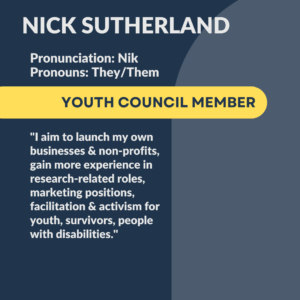Know anyone who has bragged or bemoaned about having “no life” in order to excel in their studies? There are obvious pros to overfocusing one’s energy on academic achievement without social distractions. For the “no life” crowd who sometimes graduate without close academic or campus connections, this secluded, studious lifestyle can potentially backfire.
How many of us have heard the adage, “It’s not what you know, but who you know?”
It serves as a reminder of the importance of our reputation and the connections we make. Knowing the right people isn’t just a matter of advancement in the workforce but also retains significance when we shift from a secondary to post-secondary environment. Undervaluing social opportunities under the assumption that only your educational endeavours matter, can unintentionally create career barriers. Rather than seeing socializing as a “waste of time,” students should be encouraged to pursue regular social involvement in campus life, student clubs and associations, volunteerism, and professional networking. Reputational and social capital are very real phenomena – specifically, people knowing who you are, what you do, the field you’re studying to specialize in, your interests and skills, personality and passions, are all valuable for growing your network and creating opportunities. The stigma of supposedly “wasting time” when you invest in your social life is outdated and counterproductive in such an interconnected world where word of mouth and referrals matter.
Pursuing college or university education seems like an intensive but straight-forward endeavour: apply, get accepted for enrolment, attend, participate, complete and submit assignments, achieve passing grades, and graduate.
But some students exalt “having no life” in order to excel in their studies. They hold the view that neglecting their social networks is a necessary sacrifice for securing their desired GPA and course credit. Graduating college or university without developing any close academic or campus connections can potentially backfire.
Incredible opportunities can come from joining a student club or association, participating in campus events, making friends, or forming a memorable connection with their professors for references and work opportunities.
Some of us are taught by parents or guardians that student life and campus culture are negative distractions from our academics, but there are considerable benefits to increasing social opportunities. Bonding with others during and after your studies is important for developing your comfort working with others in the future, but also integral to success in whatever field or industry you seek to join.
Don’t underestimate the value of a professor who forwards you paying job openings they trust you are eligible for, or the value of belonging to a student association you can highlight on your resume. Remotely or in-person, seek out student drop-in services, special events, and programming to meet new people across different faculties and areas of study.
Many colleges and universities have event calendars and student program schedules that provide ample opportunity to build new bonds and networks that can – down the line – lead to potential work, placement, and referral opportunities or can add to one’s personal development in other ways. Many formal or informal social situations can be a form of networking.
Informal interactions for social development includes creating online student groups using apps or social media sites and can take on different forms. You can make friends with students in your same classes, or informal study groups that evolve into networks for placement and job opportunities, as well as peer referrals.
While studying to graduate is the overt goal of college and university, investing in your social life isn’t a distraction nor a waste of time. When you invest in your social life, you invest in your future.

This blog post was written by Nick Sutherland of the First Work Youth Council.










